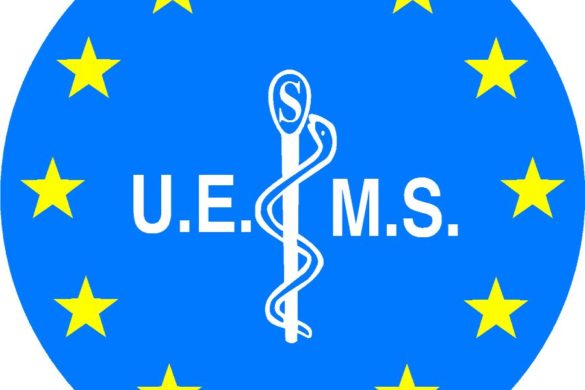Abstract:
Objective: To report the results of a 24-month extension of a phase II trial assessing the efficacy, safety, and tolerability of the once-daily oral sphingosine-1-phosphate receptor modulator, fingolimod (FTY720), in relapsing multiple sclerosis (MS).
Methods: In the randomized, double-blind, placebo-controlled core study, 281 patients received placebo or FTY720, 1.25 or 5.0 mg/day, for 6 months. During the subsequent dose-blinded extension, patients assigned to placebo were re-randomized to either dose of FTY720; those originally assigned to FTY720 continued at the same dose. Patients receiving FTY720 5.0 mg were switched to 1.25 mg during the month 15 to month 24 study visits.
Results: Of 281 patients randomized in the core study, 250 (89%) entered the extension phase, and 189 (75.6%) received treatment for 24 months. During the core study, FTY720 significantly reduced gadolinium-enhanced (Gd) lesions and annualized relapse rate (ARR) compared with placebo, with no differences between doses. During the extension phase, patients who switched from placebo to FTY720 showed clear reductions in ARR and lesion counts compared with the placebo phase; ARR and lesion counts remained low in patients who continued FTY720 treatment. After 24 months, 79 to 91% of patients were free from Gd. lesions and up to 77% of patients remained relapse free. FTY720 was well tolerated; no new safety concerns emerged during months 7 to 24 compared with the 6-month core study.
Conclusions: Once-daily oral treatment with FTY720, 1.25 or 5.0 mg, for up to 2 years, was well tolerated and was associated with low relapse rates and lesion activity.
Comment by Aiden Haghikia and Ralf Gold:

Fingolimod (FTY720; GilenyaTM, Novartis Pharma, Basel Switzerland) is the first oral drug that is approved for the treatment of relapsing remitting multiple sclerosis (RRMS) at a daily dose of 0.5 mg by the FDA since 22nd September 2010 (www.fda.org). It is another example of so called ‚bench to bedside’ drugs in MS being in clinical use now.
Primarily, the observed effects exerted by fingolimod on peripheral immune cells and processes were decisive for its therapeutical potential first in transplant medicine. Particularly, the strong inhibitory effect of fingolimod on lymphocyte egress from secondary lymphoid organs by spingosine-1-phosphate receptor 1 (S1P1) agonism have been made responsible as the predominant pharmacomechanism of fingolimod (reviewed in [1,2]). This feature ultimately prevents autoaggressive immune cells from accessing their autoantigens and attenuates disease activity in autoimmune disorders like MS, as first demonstrated in the animal model of experimental autoimmune encephalomyelitis (EAE), which reflects many immunological aspects of MS. However, growing body of evidence suggests S1P receptor(s) mediated and immune independent impact of fingolimod within the central nervous (CNS) system itself. Fingolimod passes the blood-brain barrier and attains considerable tissue concentrations. Experimental data imply specific regenerative and possibly neuroprotective effects. Among them, mechanisms promoting the extension of oligodendrocyte progenitor cells and hereby remyelination of axons may play the key role. Further CNS associated effects of fingolimod derived from in vitro experimental data comprise inhibition of astrocytic expansion and gliotic scarification as well as neurogenesis by stimulating neural stem cell proliferation. Also inspired by experimental research on fingolimod, as shown for its efficacy in the EAN (experimental autoimmune neuritis, a model for inflammatory demyelinating polyradiculoneuropathies), scenarios including various therapeutic indications for fingolimod in autoimmune neurologic disorders seem possible.
At the beginning of 2009 O’Connor and colleagues [3] could show in their 24 months phase II clinical extension study the continuous efficacy of oral fingolimod in preventing disease activity in MS patients who were treated by the drug for 6 months during the initial study published in 2006. For the extension study, patients who were initially treated with placebo were switched to either 1.25 mg or 5.0 mg daily oral fingolimod. Patients initially treated with either dose of fingolimod continued treatment at the same dosage. Between 15-24 months after initiation a portion of patients receiving 5.0 mg oral fingolimod was switched to 1.25 mg due to post-hoc rist-benefit assessment of other clinical phase II and III trials. Overall, the results of the extension study confirmed the findings of the initial core study on the beneficial fingolimod effect on disease activity in RRMS as assessed by portion of relapse free patients and MRI activity as assessed by gadolinium enhancing lesions. Patients already treated with fingolimod in the initial study sustained low risk of experiencing a relapse – 86% of them were relapse free during the 6month study, over 70% remained relapse free during the 24 months. Interestingly, initiation of fingolimod treatment in the patients formerly receiving placebo stabilized the disease activity; whereas the 66% of the placebo treated patients were free of relapse, after switching to fingolimod about 55% (depending on the dosage) did not experience another relapse during the following 24 months. Similarly, MRI activity decreased significantly after fingolimod treatment with 79-91% of patients free from gadolinium enhancing lesions. This extension study lacked a placebo control arm which hampered the option of a strong deductive statement.
Meanwhile, the results of two major clinical phase III studies evaluating the effect of fingolimod in RRMS have been published, the FREEDOMS and the TRANSFORMS study published in 2010 (results reviewed in [4]). While the FREEDOMS study compared fingolimod with placebo, the TRANSFORMS study was a head-to-head study comparing fingolimod with intramuscularly injected interferon beta-1a (IFNb). Fingolimod proved to be superior over placebo and more interestingly also significantly to IFNb by reducing CNS disease activity by at least 50% and inflammatory activity measured by MRI. Just recently, the results of 12 months extension of the TRANSFORMS study were published [5]. Here, patients formerly in the IFNb control arm were switched to fingolimod (0.5 or 1.25 mg daily dose) and showed to have an estimated annual relapse rate (ARR) of 33%, whereas the group continuing fingolimod treatment had either 18% (for 0.5 mg fingolimod daily dose) or 20% (for 1.25 mg fingolimod daily dose) ARR. Hence, patients receiving first line IFNb might benefit from escalating to fingolimod if there is a clear clinical indication for the switch, but might benefit less from activity reducing effect of fingolimod in a short term sense. It awaits further investigation whether the risk of developing relapses comes to equilibrium in long term fingolimod treatment also for patients initially receiving first line immunomodulation (IFNb or glatiramer acetate).
Fingolimod promises to become an effective option for the treatment of RRMS in the long run. However, the occurrence of so far reported adverse events, e.g. two cases of fatal virus encephalitis and serious cardiac adverse events in the TRANSFORMS study (occurring at 1.25 mg dosage) demonstrate that novel and more effective MS drugs need special handling. Monitoring programs provided by the pharmaceutical industry together with clinical alertness by treating neurologists and the development of reliable markers to detect any patient at risk for drug intolerance seem more necessary than before for the treatment of MS.
Although submission at FDA and EMEA was only made for the lower dosage of 0.5 mg/day in which these side effects did not occur, there is a call for increased alertness in handling this promising drug.References:
1. Haghikia A, Gold R. The impact of fingolimod (FTY720) in neuroimmunologic diseases: mechanisms beyond immunomodulation. Am J Pathol. 2010; 176:2599-601. 2. Cohen JA, Chun J. Mechanisms of Fingolimod’s Efficacy and Adverse Effects in Multiple Sclerosis. Ann Neurol. 2011; 69:759-77.
3. O’Connor P, Comi G, Montalban X, Antel J, Radue EW, de Vera A, Pohlmann H, Kappos L; FTY720 D2201 Study Group.Oral fingolimod (FTY720) in multiple sclerosis: two-year results of a phase II extension study. Neurology. 2009; 72:73-9.
4. Aktas O, Küry P, Kieseier B, Hartung HP. Fingolimod Is a Potential Novel Therapy For Multiple Sclerosis. Nat Rev Neurol 2010, 6:373-382.
5. Khatri B, Barkhof F, Comi G, Hartung HP, Kappos L, Montalban X, Pelletier J, Stites T, Wu S, Holdbrook F, Zhang-Auberson L, Francis G, Cohen JA; on behalf of the TRANSFORMS Study Group. Comparison of fingolimod with interferon beta-1a in relapsing-remitting multiple sclerosis: a randomised extension of the TRANSFORMS study. Lancet Neurol. 2011 Jun;10(6):520-529. Epub 2011 May 13.
Aiden Haghikia (a,b) and Ralf Gold (a):
(a) Department of Neurology, Ruhr-University Bochum, St. Josef-Hospital, Bochum, Germany; (b) Department of Clinical Neurology, Weatherall Institute of Molecular Medicine, University of Oxford, John Radcliffe Hospital, Oxford, United Kingdom







